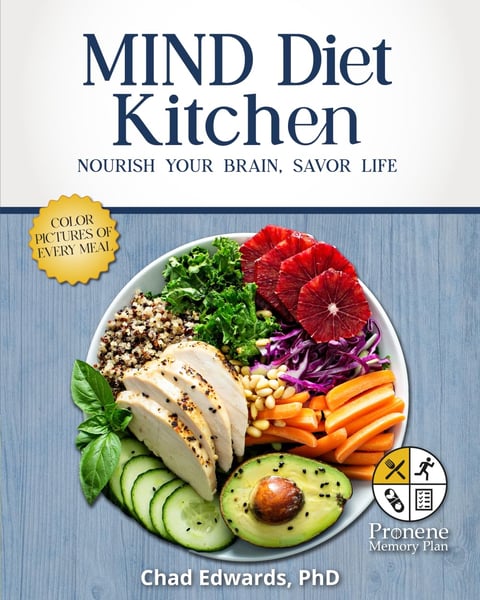Top 10 Simple Habits for a Happier Life: Easy Changes to Boost Your Joy
10/13/20246 min read
Digital Detox Implementation
There is a need to reduce screen time for the sake of one's mental health. A digital detox can provide an improved feeling toward oneself and the direct environment. Having specific times allocated to checking your devices reduces distractions.
Such borders as no screens during meals, or an hour before going to bed, actually improve sleep quality and mental clarity. Embracing no-screen time develops hobbies and personal growth toward a more meaningful lifestyle. It is in the practice of such acts that one may lead a balanced life full of creativity and positivity.








People seek happiness in life while oftentimes overlooking the simple habits one does daily. It is remarkable how little positive additions in the daily life of an individual can largely enhance his general happiness and satisfaction. In fact, learning to appreciate everyday pleasures while making conscious choices to effect change can impact a great number of benefits.
The development of a more positive mind does not necessarily require any drastic changes in life. Gratitude and the practice of regular exercise are habits that build up slowly, snowballing into greater effects. By embracing such easy habits, individuals open themselves up to feelings of happiness that spill into all areas of life.
Cultivating Mindfulness and Self-Awareness
Some of the qualities of living a happier life are mindfulness and self-awareness. They ensure less tension and anxiety while securing good mental health. Among two of the strong skills for developing these qualities, meditation and gratitude stand tall.
Embracing Meditation and Deep Breathing
Meditation encourages mindfulness-a major drive toward developing attention to the present moment. It minimizes distractions and can ensure lesser anxiety and depression levels if practiced regularly.
Deep breathing can amplify the positive effects of meditation. Slow, thoughtful breathing sends signals to your body to initiate your body's relaxation response. This is a simple behavior that may lower cortisol levels and improve feelings of calm.
To get started, carve out a few minutes each day. Pay attention to your breath; when your mind wanders, acknowledge the thoughts. Over time, serotonin levels may begin to improve because this is why one's mood elevates.
Gratitude and Positive Affirmations
Gratitude can act as an important factor toward self-awareness and mental health. Keeping a gratitude journal will make them appreciate the positive things in life. Each day, writing three things they are grateful for instills in them an appreciating attitude.
Besides gratitude, positive affirmations can rebuild one's mentality. Saying or repeating to oneself some positive or empowering words challenges the negative ideas. It engenders self-love and embraces a wellspring of positive thinking.
It is achieved through affirmations that reflect your personality. Examples could be like, "I am capable enough," or "I deserve all the happiness in this world." These, when repeatedly said, will provide a positive self-image by minimizing issues of anxiety.
Nurturing Relationships and Empathy
Good relationships and kindness go a long way in improving emotional well-being. Acts of kindness and empathy draw people closer to others. In this area, there are two identifiable areas of concentration.
Building Connection Using Acts of Kindness
Acts of kindness are essential in sealing relationships. Little things, like sending a text to check up on somebody or offering one's help, go a long way. Little things, done on purpose, speak volumes about the care and consideration one has.
Consider keeping a "kindness journal" where you monitor daily efforts from complimenting a coworker to surprising your friend with his or her favorite treat. It is amazing how this conscious act ripples out and others pay it forward.
Kindness enhances the emotional well-being both for the giver and receiver. Kindness breeds a supportive environment that keeps good relationships flourishing and nurtures positivity.
Nurturing Empathy and Forgiveness
Empathy and forgiveness have a great role to play in relationship building. When one can understand others' emotions, then bonding is profound. This would need listening skills and an intrinsic ability to get into the shoes of others.
Forgiveness is an important activity that comes under the ambit of good emotional health. Resentment often leads to stressful living and acts as a hindrance to personal growth and development. Forgiveness frees an individual from all negativity.
Empathy can be developed if during a conversation open-ended questions are asked; that will help the other person to share his or her experiences and feelings. Accepting vulnerabilities builds trust and strengthens relationships.
Besides this, frequent reflection on personal feelings develops more awareness about self and others. It thus helps a particular individual to respond to situations with empathy and consideration.
Improve Your Physical Health and Energy
It is a key factor in ensuring high wellbeing because paying attention to physical health and energy greatly enhances overall wellbeing. In addition to incorporating movement into daily life, maintaining good nutrition and paying attention to sleep play an enormous role in achieving this approach.
Incorporating Physical Activities into Daily Life
Regular exercises are vital in ensuring the physical body remains healthy and full of energy. Minor activities, such as taking walks during breaks, using staircases instead of elevators, or stretching during work, could be helpful.
Resistance training, even with body weight, keeps muscles healthy and increases metabolic rates. The more a routine is set up, the easier it will be to exercise instead of a burden. Setting small achievable goals will also motivate making progress while reducing stress.
Nutrition and Mindful Eating for Longevity
Nutritional eating helps to regain energy and improve health. A balanced diet that can help boost energy should include lean proteins, healthy fats, and colorful fruits and vegetables. Mindful eating practices stimulate individuals to pay attention to hunger responses and choices of food, which improves awareness or appreciation of meals.
Add in plenty of antioxidant-rich foods, along with foods high in vitamins and minerals, to support health into the future. Hydration is important, too. Drinking water throughout the day helps maintain energy and supports bodily functions.
We "Mind Diet Kitchen" by by Chad Edwards - Get it here
Rest and Quality Sleep First
Quality sleep is a vital component in body health and recovery processes. Having a routine sleep schedule regulates the normal bodily cycle. Develop a pre-sleep routine that could be soothing, hence improving quality sleep and increasing sleep time.
Sleep deprivation negatively affects energy levels and overall well-being. Ensuring a comfortable sleep environment and the absence of distractions will help improve rest. Limiting exposure to screens before bedtime and practicing relaxation techniques can further help achieve restorative sleep in support of health and energy throughout the day.
Supporting a Balanced and Creative Lifestyle
A balanced and creative lifestyle paves the way for personal growth and well-being. Devoting time to hobbies, having a productive morning routine, and spending less time in front of screens contribute to a more happy feeling; which can be realized through the use of following strategies.
Happiness from Hobbies and Being Creative
Hobbies are very important in self-caring and personal growth. They allow self-expression and, therefore, can reduce stress. Whether that be painting, playing an instrument, or gardening, the time put into activities that make a person happy creates a positive attitude.
So, a person can dedicate some time every week for creativity. It helps in building up a sense of routine and accomplishment. It is also extremely helpful to make a list of hobbies that one actually intends to nurture and develop in the name of creativity.
Designing a Productive Morning Routine
A well-structured morning routine can grossly influence one's productivity during the day. Having a regular wake-up time, followed by a few positive habits, sets a constructive tone. It may include exercise, meditation, and reading.
This will involve a small workout to improve energy levels and overall mood. Taking time for breakfast will help with better focus later in the day. Writing down a to-do list also keeps priorities clear and at a minimum.
Subscribe to our newsletter
Enjoy exclusive special deals available only to our subscribers.
Joy
Inspire your journey to happiness and fulfillment.
contact us
Growth
© 2024. All rights reserved.
